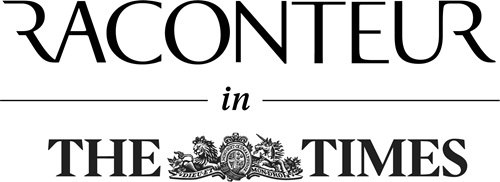
Data and the trust barometer – the new frontline of retail
The inventor of the world wide web has a startup. Sir Tim Berners Lee's company Inrupt has launched Solid, a platform for giving consumers control over their data. Solid keeps user data in a secure locker, or pod, and access can be granted or revoked as needed.
This means consumers need never input data twice for different services – merely grant access to their Solid data-pod. It cuts down on misuse of data, as information is stored privately by the user. Sir Tim has persuaded the BBC, the NHS, and NatWest bank to explore his concept.
The appeal is obvious. Consumers are deeply concerned by data use and abuse. Protecting data is the new front line of retail. Brands that fail to inspire trust are being abandoned.
A worldwide survey found a third have already switched brands for data privacy reasons. Deloitte found 98 per cent of UK consumers are “concerned” by the way online brands use personal data. A further 85 per cent will avoid a brand if their data is not secure.
Olly Bray, Senior Partner at law firm RPC and noted tech commentator, says we've hit a turning point: “Data privacy is arguably the hottest topic in retail right now. Consumers are shopping around to find brands that take data seriously. It's a huge opportunity for those who get it right.”
In retail, Marks & Spencer is a pioneer. It publishes all data policies in plain English. It enhances the brand's mission to be a friend of the consumer. In the tech world, graphics card maker Nvidia operates a policy of total clarity: “We promise to protect your privacy. We only collect personal data to make or improve our products, or if you give us permission. We never sell your data.”
The issue is magnified with the forthcoming EU ePrivacy Regulation. “It's the sister legislation to the GDPR,” explains Karen Hendy, Co-Head of Retail at RPC. “The text is still being agreed on. The aim is to add additional protections for personal data in electronic communications. All brands will need to review their data processes to ensure they are compliant.” The UK position after the Brexit transition period is uncertain, but current policy is to mirror EU data policies to ensure a compatible data treatment across the two jurisdictions.
“This is an opportunity for brands to stand out,” says Bray. “My own family is now making retail choices based on the ethics of brands. We switched to the Mindful Chef food delivery service because it donates a school meal to a child in poverty for every meal purchased. The packaging is recyclable. Data privacy is part of that ethical proposition.”
Furthermore, even before innovations like Solid gain wide adoption, consumers are being armed with tools to exercise greater control over data collection and use. “At the end of last year more than 500 million people used mobile browsers that block ads by default,” says Bray. “Google is phasing out third-party cookies in its Chrome Browser. Apple is making privacy the default across its products. And consumers are putting good privacy practices at the heart of their brand engagement decisions. This increase in consumer awareness is driving change in the way online services and connected devices are designed."
The good news is that brands who build trust with consumers will prosper. They'll build loyalty, and enjoy access to the data they require to develop products and market effectively. Bray puts it like this: “The only way brands will be able to meaningfully interact with consumers in the future is by building trust through transparency, human-centred design and ethical data use. We are working with our clients so they can take the lead on the issue. Crack this and your customers should be with you for life. Ignore it and they'll leave you for dust.”
* This article was originally featured in 'The Future of Retail' - a joint publication with Raconteur and The Times, published on 30 November 2020. You can download the publication in full here.

